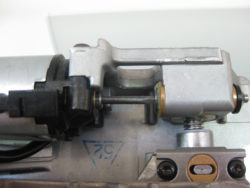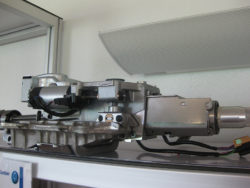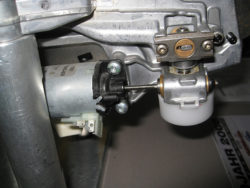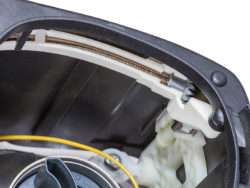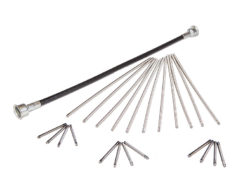
In the automotive industry, the flexible shaft is used primarily for its flexibility and reliability. Here, for example, it is installed for the adjustment of car seats, headlights, windows, sunroofs or spoilers, as well as for retracting and extending blinds, in electric convertible roofs, or for motorised steering wheel adjustment.
Advantages
The flexible shaft can be used with a crank handle or push button to ensure that the driver is distracted as little as possible from the traffic situation and enjoys maximum comfort. Whether manually driven or motorised, the flexible shaft is completely maintenance- and wear-free and performs its duties over the entire life cycle of the vehicle. Thousands of load alterations, the baking heat of summer and the icy cold of winter have no effect on a perfectly designed flexible shaft. Stainless steel shaft cores also withstand corrosive ambient conditions with ease.
The flexible shaft can be used with a crank handle or push button to ensure that the driver is distracted as little as possible from the traffic situation and enjoys maximum comfort. Whether manually driven or motorised, the flexible shaft is completely maintenance- and wear-free and performs its duties over the entire life cycle of the vehicle. Thousands of load alterations, the baking heat of summer and the icy cold of winter have no effect on a perfectly designed flexible shaft. Stainless steel shaft cores also withstand corrosive ambient conditions with ease.
Other fields of application
In rail vehicles (e.g. locomotives, trams), flexible shafts are currently used in backup actuators for parking brakes and pantographs, among other applications.


